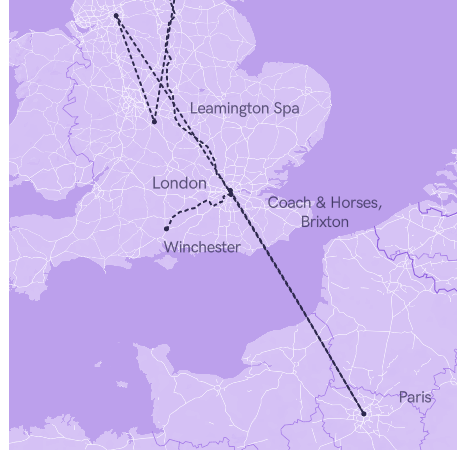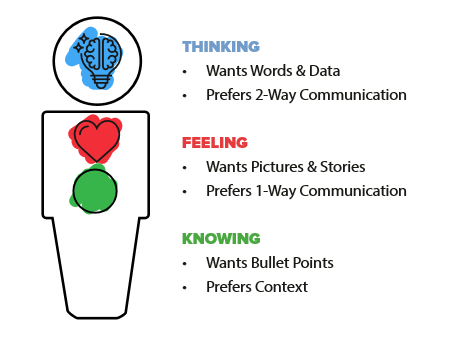One of my “bricks and mortar” business clients is expanding into the digital world, having identified a sizeable opportunity. This has meant engaging some technology partners and planning a capital raise, which I have been asked to oversee.
We had the first meeting with the chosen partners last week, and after all the chat about MVPs and MOUs my client took me aside and asked if I could provide her with a glossary of terms so she could keep up with the lingo. I thought I would share more widely!
Angel Investment
This type of investment typically happens when a startup is in its early stages; it’s when an investor, or a “business angel,” provides startups with initial or growth capital for a stake in the company.
API (Application Programming Interface)
The protocols for how different apps / programs communicate with each other automatically.
CAC (Customer Acquisition Cost)
The average cost to the business for acquiring a customer. This can be overall, or related to specific marketing channels (eg, “Our CAC for Facebook ads is lower than for Google Ads”).
Cap Table / Capitalisation Table
A document that explains the various shareholders’s ownership, dilution, and option pool.
Exit
Founders sometimes develop an exit business strategy before or during their entrepreneurial journey. An exit is a way to transition the ownership of your company to another company and pay back your investors.
Freemium
A business model where some basic features are provided to clients for free, with the hope they will upgrade to a paid service once they see how good the product is.
IP (Intellectual Property)
Non-tangible assets, such as patents, trademarks, copyrights, and business systems.
IPO (Initial Public Offering)
When a startup’s shares of stock are made public for the first time, they are listed on a Stock Exchange. it’s called an IPO. At this point, a “private” organization turns into a “public” company. Usually, only 10-20% of all available shares are made available to the public in this way.
LTV (Lifetime Value)
The average value to the business from each customer. This is often used in conjunction with CAC – eg, “If your LTV is 3 times greater than your CAC then your business will grow rapidly.”
MVP (Minimum viable product)
A technique which involves the development of a basic version of a new product that aims to satisfy its early adopters. The product is then developed with further features only after considering feedback from initial users.
MOU (Memorandum of Understanding)
A document that outlines an intention for future plans, without the cost of a binding contract just yet.
NDA
Non-disclosure agreement. An agreement between two parties to protect sensitive or confidential information, such as trade secrets, from being shared with outside parties.
OPM (Other People’s Money)
Taking on investment or debt-funding to finance your business, rather than your own funds or using business cash flow.
Pitch deck
A pitch deck is a short version of a business plan which presents key figures to potential investors in hopes of winning them over, and getting them to invest.
Pre Money / Post Money Valuation
The value of a startup either BEFORE (Pre Money) or AFTER (Post Money) a fundraising event.
ROI
This is the much-talked-about “return on investment.” It’s the money an investor gets back as a percentage of the money he or she has invested in a venture.
Scale up
You can say you’ve scaled up when your company has grown in terms of size, geographical location, market, etc.
Seed funding
The first round of small, early-stage investment from family members, friends, banks or an investor is commonly referred to as seed funding.
Series
Refers to the specific round of financing a company is raising. For example, company X is raising their Series A round.
Stack
The combination of technology (languages, frameworks, software, tools, databases etc) that a startup uses.
Startup
A company in the early or growth stages of operation, usually under three years old and (if not already) becoming profitable.
Sweat Equity
Equity provided in exchange for work, not money.
Term sheet/Letter of intent
The document between an investor and a startup including the basic terms and conditions for financing which is commonly non-binding. Once an agreement is reached between the parties involved, a binding agreement based on the term sheet is drawn up.
Unicorn
A company often in the tech or software sector worth over US$1 billion. Some well known unicorn startup companies include Tesla, AirBnB, Instagram and Shopify.
UX / UI (User Experience / User Interface)
What does the software look like to the users, and what is their experience when using it?
Valuation
The process by which a company’s worth or value is determined. An analyst will look at capital structure, management team, and revenue or potential revenue, among other things.
VC (Venture capital/Venture capitalist)
Venture capital is financing provided by firms to small, high-risk, startup companies with large growth potential in return for equity. Investors working for venture capital firms that choose to invest in specific companies are typically called VCs.
Vesting
A process that involves giving or earning a right to a present or future payment, benefit or asset. For example, an employee or contractor may have shares that “vest” after 2 years – if the relationship doesn’t work out in that time, no shares are given.




